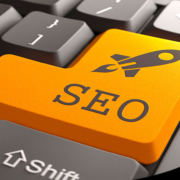Which Marketing Strategy is Most Effective
In the dynamic and ever-evolving world of digital marketing, businesses are constantly searching for the most effective strategies to reach their target audience, build brand awareness, and drive conversions. With so many options available, it can be challenging to determine which marketing strategy is most effective for your business. This article explores various marketing strategies, their benefits, and how to choose the best approach to achieve your business goals.
Understanding Marketing Strategies
Marketing strategies encompass a wide range of activities and tactics designed to promote products or services, engage with customers, and ultimately drive sales. The effectiveness of a marketing strategy depends on various factors, including your business goals, target audience, industry, and budget. Here, we’ll explore some of the most popular and effective marketing strategies used today.
Content Marketing
Content marketing involves creating and distributing valuable, relevant, and consistent content to attract and engage a clearly defined audience. This strategy focuses on building trust and providing value to potential customers, rather than directly promoting products or services.
Benefits of Content Marketing
- Builds Trust and Authority: High-quality content positions your brand as an industry leader and builds trust with your audience.
- Improves SEO: Regularly updated content with relevant keywords helps improve your search engine rankings.
- Drives Traffic: Valuable content attracts visitors to your website, increasing traffic and potential leads.
Effective Content Marketing Tactics
- Blog Posts: Regularly publish informative and engaging blog posts that address the needs and interests of your target audience.
- Ebooks and Whitepapers: Create in-depth resources that provide valuable insights and solutions to your audience’s problems.
- Infographics: Use visually appealing infographics to present complex information in an easy-to-understand format.
- Videos: Produce high-quality videos that educate, entertain, or inspire your audience.
Search Engine Optimization (SEO)
Search engine optimization (SEO) is the process of optimizing your website to rank higher in search engine results pages (SERPs). This strategy focuses on improving both on-page and off-page factors to increase your website’s visibility and attract organic traffic.
Benefits of SEO
- Increases Organic Traffic: Higher rankings in search results lead to more organic traffic to your website.
- Cost-Effective: Unlike paid advertising, SEO focuses on organic traffic, providing long-term benefits without ongoing costs.
- Enhances User Experience: Optimizing your website for SEO also improves its overall usability and performance.
Effective SEO Tactics
- Keyword Research: Identify and target relevant keywords that your audience is searching for.
- On-Page Optimization: Optimize your website’s content, meta tags, and internal linking structure.
- Technical SEO: Improve site speed, mobile-friendliness, and other technical aspects to enhance search engine rankings.
- Backlink Building: Acquire high-quality backlinks from reputable websites to boost your site’s authority.
Social Media Marketing
Social media marketing involves using social media platforms to promote your products or services, engage with your audience, and build brand awareness. This strategy leverages the power of social networks to reach a large and diverse audience.
Benefits of Social Media Marketing
- Wide Reach: Social media platforms have billions of active users, providing a vast audience for your marketing efforts.
- Cost-Effective: Many social media marketing tactics are low-cost or free, making it an affordable option for businesses of all sizes.
- Engagement: Social media allows for direct interaction with your audience, fostering relationships and building brand loyalty.
Effective Social Media Marketing Tactics
- Content Sharing: Share valuable content, including blog posts, videos, and infographics, to engage your audience.
- Paid Advertising: Use social media ads to target specific demographics and increase your reach.
- Influencer Partnerships: Collaborate with influencers to promote your products or services to their followers.
- Community Building: Create and nurture online communities around your brand to foster engagement and loyalty.
Email Marketing
Email marketing involves sending targeted emails to your audience to promote products, share updates, and nurture relationships. This strategy is highly effective for building and maintaining customer relationships.
Benefits of Email Marketing
- Direct Communication: Email allows for direct communication with your audience, delivering personalized messages straight to their inbox.
- High ROI: Email marketing consistently delivers one of the highest returns on investment (ROI) among digital marketing strategies.
- Measurable Results: Email marketing platforms provide detailed analytics to track the performance of your campaigns.
Effective Email Marketing Tactics
- Personalization: Use data to personalize your emails, addressing recipients by name and tailoring content to their interests.
- Segmentation: Segment your email list based on demographics, behavior, and preferences to deliver more relevant content.
- Automation: Use email automation tools to send timely and relevant messages based on user actions and triggers.
- A/B Testing: Test different subject lines, content, and calls to action to optimize your email campaigns.
Pay-Per-Click (PPC) Advertising
Pay-per-click (PPC) advertising involves paying for ads that appear on search engines, social media platforms, and other websites. Advertisers pay a fee each time someone clicks on their ad.
Benefits of PPC Advertising
- Immediate Results: PPC ads can drive traffic and generate leads quickly, providing immediate visibility for your brand.
- Targeted Reach: PPC allows for precise targeting based on keywords, demographics, location, and more.
- Measurable ROI: PPC platforms provide detailed analytics to measure the performance and ROI of your campaigns.
Effective PPC Advertising Tactics
- Keyword Research: Identify high-intent keywords to target in your PPC campaigns.
- Ad Copy Optimization: Write compelling ad copy that encourages clicks and conversions.
- Landing Page Optimization: Ensure your landing pages are optimized for conversions, providing a seamless user experience.
- Retargeting: Use retargeting ads to re-engage users who have previously visited your website.
Influencer Marketing
Influencer marketing involves partnering with influencers—individuals with a large and engaged following—to promote your products or services. This strategy leverages the trust and credibility influencers have with their audience.
Benefits of Influencer Marketing
- Credibility and Trust: Influencers have established credibility with their followers, making their endorsements highly effective.
- Expanded Reach: Influencers can introduce your brand to a wider audience, increasing visibility and awareness.
- Authentic Promotion: Influencer content often feels more authentic and relatable compared to traditional ads.
Effective Influencer Marketing Tactics
- Identify Relevant Influencers: Find influencers whose audience aligns with your target market.
- Build Relationships: Develop genuine relationships with influencers to foster long-term partnerships.
- Content Collaboration: Collaborate on content that showcases your products or services in an authentic way.
- Track Performance: Monitor the performance of influencer campaigns to measure ROI and refine your strategy.
Choosing the Most Effective Marketing Strategy
With so many marketing strategies available, how do you determine which one is most effective for your business? Here are some key considerations:
1. Define Your Goals
Clearly define your marketing goals, whether it’s increasing brand awareness, driving traffic, generating leads, or boosting sales. Your goals will guide your choice of strategy.
2. Know Your Audience
Understand your target audience’s preferences, behaviors, and pain points. This knowledge will help you choose the strategies that resonate most with them.
3. Consider Your Budget
Evaluate your marketing budget and allocate resources to the strategies that offer the best return on investment. Some strategies, like SEO and content marketing, require more time and effort, while others, like PPC, involve direct costs.
4. Analyze Competitors
Study your competitors’ marketing strategies to identify what’s working in your industry. This analysis can provide insights and inspiration for your own efforts.
5. Test and Measure
Experiment with different strategies and measure their performance. Use data and analytics to identify which tactics are most effective and refine your approach accordingly.
Partnering with a Digital Marketing Agency
Implementing effective marketing strategies can be complex and time-consuming. Partnering with a digital marketing agency can help you navigate these challenges and achieve your goals more efficiently. An agency can provide expertise in:
- Search Engine Optimization (SEO): Comprehensive SEO services, including keyword research, on-page optimization, and technical SEO. Learn more about our search engine optimization services.
- Content Creation: Developing high-quality, engaging content that resonates with your target audience.
- Social Media Management: Creating and managing social media campaigns to increase brand awareness and drive traffic.
- Email Marketing: Crafting personalized and effective email campaigns to nurture leads and retain customers.
- PPC Advertising: Managing PPC campaigns to deliver immediate results and measurable ROI.
There is no one-size-fits-all answer to which marketing strategy is most effective. The best approach depends on your business goals, target audience, industry, and budget. By understanding the benefits and tactics of various marketing strategies, you can choose the right mix to achieve your objectives. Whether you focus on content marketing, SEO, social media, email, PPC, or influencer marketing, the key is to test, measure, and refine your efforts to maximize results. Partnering with a digital marketing agency can further enhance your marketing efforts, providing the expertise and resources needed to succeed in the competitive digital landscape.






Leave a Reply
Want to join the discussion?Feel free to contribute!